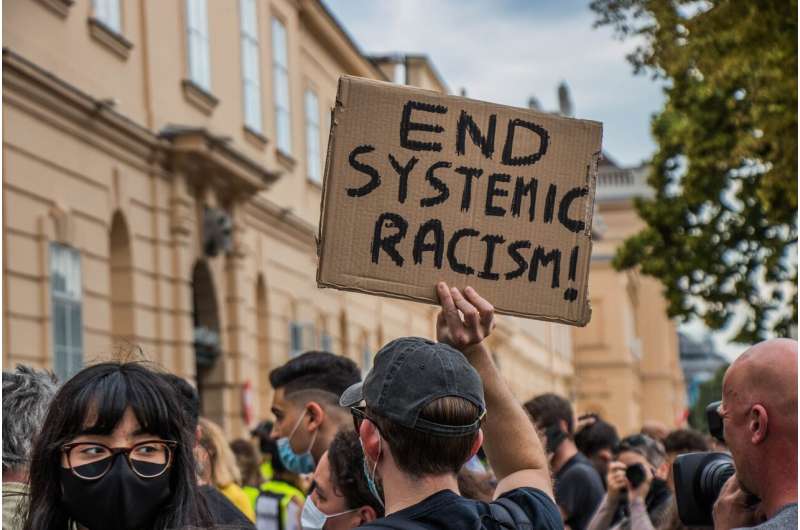Researcher: Young Black people are disproportionately strip-searched—ways the justice system treats them as a threat

A new report from the Children's Commissioner for England has found that 457 strip searches of children by police took place between July 2022 and June 2023. The report shows that Black children were four times more likely, when compared to national population figures, to be strip-searched.
The Children's Commissioner's reports on this topic began following the terrible case of Child Q, a 15-year-old Black girl who was strip-searched at her school. The Children's Commissioner's research shows that before Child Q's case came to light, Black children were six times more likely to be strip-searched. So there has been some improvement, though Black children remain disproportionately affected.
But my academic work as a criminologist and lecturer in youth justice continues to demonstrate that young Black people are over-represented throughout the whole justice system, from their interactions with the police to their presence in prisons.
For instance, in 2022, Black children made up 31% of children on remand—in custody before the start of a trial. But they comprise only around 5% of the school-age population. Research has found that in 2018, Black children received longer custodial sentences than their white peers.
Treated as older
There are themes that continuously emerge from how young Black people are treated by the justice system, as well as in other areas of society, such as education and health care. One is adultification, when Black children are perceived as being older and more mature, and so also less vulnerable and innocent, than other children. This affects how they are treated by adults.
Adultification was clearly at play in the case of Child Q, who was strip-searched while menstruating, without an appropriate adult present and without the consent of her parents, on the incorrect assumption that she possessed cannabis. She received punitive and disciplinary treatment from adults, both teachers and the police, who should have been there to protect and support her.
The safeguarding practice review that followed this incident found there to be a high level of probability that the adults involved in the case were influenced by adultification bias in this regard. The disproportionate decision to strip-search Child Q is unlikely to have been disconnected from her ethnicity or her background as a child growing up on a Hackney estate.
Another theme which stands out in how young Black people are treated by the justice system is that they are more likely to be seen as a threat and as potentially violent—especially Black boys and young men.
Viewed as a threat
This can be seen in the use of police stop and search powers against Black people. In the year ending March 2023, there were 24.5 stop and searches for every 1,000 Black people, compared to 5.9 for every 1,000 white people.
It is also arguably evident in the case of the justice system's treatment of drill music, a form of rap and a predominantly Black genre. Many see it as controversial for its perceived celebration of violence and gang life. On the other hand, drill is an art form, and chronicles experiences that other young people growing up in difficult circumstances can relate to. Its storytelling requires imagination and creativity.
Drill is also perceived as a threat—and in some cases, the police have exercised powers to censor prominent drill artists on the grounds that they incite crime. In 2018, members of drill group 1011 were banned from mentioning death or injury in their lyrics, and had to notify police when releasing music videos.
One of the group, Digga D, was sentenced to a year in prison in 2018, aged 18, for conspiracy to commit violent disorder. During the trial, music videos were used as evidence.
Society provides narrow niches of acceptance to young people of color. There are areas where aspects of Blackness are celebrated, copied, seen as cool—including music, dress, sport, hairstyles or language.
But the line between what is seen as acceptable forms of self-expression and unacceptable, such as with drill, is very fine. In 2023, Digga D performed at the Royal Albert Hall—while still under a criminal behavior order with restrictions, including restrictions on what he could cover in his lyrics.
Research from the Black British Voices Project and The University of Cambridge surveyed over 10,000 Black British people in a project beginning in 2020. The survey findings show that 87% of the participants had little to no trust in Britain's criminal justice system. For young Black people in the UK, awareness of social injustice is just part of everyday life.
Provided by The Conversation
This article is republished from The Conversation under a Creative Commons license. Read the original article.![]()
No comments:
Post a Comment